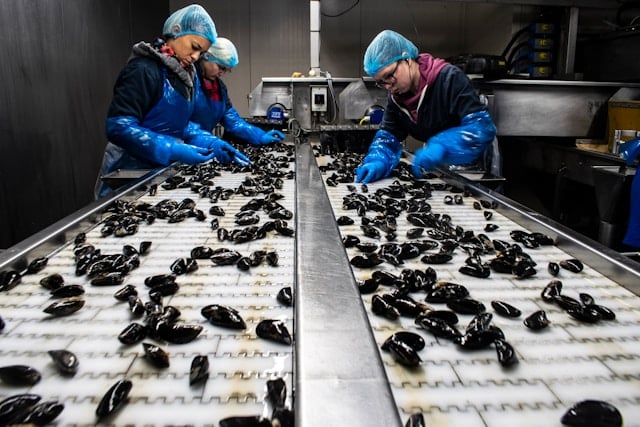For those of you interested in sustainable food production, aquaponics may not be a new term. However, for many, it might be one of those words you’ve heard thrown around in discussions about sustainability but haven’t really understood what it means. Aquaponics refers to a method of food production that combines traditional aquaculture (raising aquatic animals such as fish in tanks) with hydroponics (cultivating plants in water) in a symbiotic environment. This innovate approach to farming has immense potential to drive a new wave of sustainable food production in the UK.
Understanding Aquaponics
Let’s break down aquaponics a bit further. This ingenious system allows for the growth of both fish and plants in a controlled environment. The fish waste provides an organic source of nutrient-rich food for the plants. In return, the plants naturally filter the water in which the fish live. The system, therefore, creates a cycle where both fish and plants can thrive simultaneously, cutting down costs and energy usage in traditional farming methods.
A voir aussi : How to Create Inclusive Play Spaces for Children with Disabilities in the UK?
Aquaponics is an old concept, with roots in ancient cultures, but its modern applications offer exciting possibilities for sustainable farming. Using this method, farmers can produce food all year round, regardless of the climate. Furthermore, it significantly reduces the amount of water used in conventional farming, as the water in the system is constantly recycled.
The Role of Aquaponics in Sustainable Food Production
As issues of climate change continue to grow, the search for sustainable methods of food production has become more crucial. Aquaponics, with its low energy requirements and efficient use of resources, provides a compelling solution.
Sujet a lire : How to Foster Green Innovation in the UK’s Small Business Sector?
The aquaponics system can also contribute to food security, a critical concern in the UK and globally. By allowing for local production of both fish and vegetables, aquaponics can reduce the need for imports and provide a buffer against global food price fluctuations. This system is capable of producing a variety of plant species and fish, offering a diverse range of food products.
Moreover, aquaponics systems do not require the use of synthetic fertilizers, pesticides or antibiotics commonly used in conventional farming. This not only reduces the environmental impact of farming, but also results in healthier and safer food.
Economic Aspects of Aquaponics
Implementing aquaponics systems isn’t without its costs, but many experts argue that the benefits far outweigh the economic investments needed. A study by the University of the Virgin Islands found that commercial-scale aquaponics systems were economically viable, with profits increasing over time as farmers became more familiar with the system.
Furthermore, the potential for job creation in the aquaponics sector should not be overlooked. The establishment and operation of aquaponic farms could create jobs in areas such as construction, maintenance, and harvesting, contributing to local economies.
Choosing the Right Fish and Plants for Aquaponics
The choice of fish and plant species is a crucial factor in the success of an aquaponics system. The species should be well-suited to the local climate and have similar temperature and pH requirements. In the UK, common fish used in aquaponics include tilapia, trout, and carp.
As for plants, leafy greens such as lettuce, chard, and kale are popular choices due to their high nutrient uptake. Herbs like basil and mint also do well in aquaponic systems. Additionally, fruit-bearing plants like tomatoes and peppers can be grown, although they require a higher nutrient level, which can typically be achieved with a well-established system.
The Future of Aquaponics in the UK
The future of aquaponics in the UK looks promising, with increasing interest from both farmers and consumers. Many universities and research institutions are exploring the potential of aquaponics, contributing to a growing body of knowledge about this sustainable farming method.
Challenges do exist, from the initial costs of setting up an aquaponics system to the need for specialist knowledge and skills. However, with the growing urgency for sustainable food production solutions, aquaponics is poised to play a significant role in the agriculture of the future.
As more people become aware of the benefits of aquaponics – its contribution to food security, the reduction of environmental impact, and the promotion of local economies – it’s clear that it is more than just a buzzword. It’s a practical, sustainable solution to some of the most pressing challenges we face in our food production systems today.
Regulation and Policy Impact on Aquaponics in the UK
Regulation and policy are key aspects to consider when discussing aquaponic systems. In the UK, aquaponics falls under the purview of multiple regulatory bodies, including those dealing with animal welfare, environmental protection, and food safety. This can pose a hurdle for those wishing to implement an aquaponic system, as navigating the complex regulatory landscape can be challenging.
Nevertheless, it is crucial that aquaponics systems adhere to all relevant regulations to ensure the safety of both the food produced and the ecosystem they inhabit. Practices such as maintaining optimal water quality and providing appropriate fish feed are not only ethical but also legally binding in many cases.
Additionally, various policies can impact the viability of aquaponics systems. For instance, subsidies for traditional farming methods can make these more economically attractive than aquaponics. On the other hand, policies supporting sustainable farming and local food sovereignty can bolster the implementation of aquaponics. Therefore, engaging with local and national policymakers to foster a supportive regulatory environment is a key step in promoting aquaponics in the UK.
Aquaponics and Education
Education is a crucial element in the promotion of sustainable food production methods like aquaponics. Schools, colleges, and universities can play a pivotal role in this, incorporating aquaponics into their curriculum to inspire the next generation of sustainable farmers.
By doing so, students can gain hands-on experience with aquaponic systems, learning about the intricacies of this method of food production. This can include understanding the balance between fish species and plant growth, the importance of water quality, and the role of bacteria in the system.
Furthermore, the use of aquaponics in education can extend beyond the classroom. Community workshops and demonstrations can increase awareness among the wider public, promoting the benefits and feasibility of aquaponics. In this way, education can act as a powerful tool in changing attitudes towards more sustainable food production.
Conclusion
Aquaponics presents a sustainable solution to the challenges posed by conventional farming and climate change. This innovative method of food production, combining aquaculture and hydroponics, offers many benefits, from water and energy efficiency to food security and local economic development.
However, for aquaponics to truly become a mainstay in the UK’s agricultural landscape, there are hurdles to overcome. These include the initial setup costs, the need for specialist knowledge, and the need to navigate a complex regulatory environment. By addressing these challenges and investing in education and research, the UK can harness the full potential of aquaponics.
Undoubtedly, the future of aquaponics in the UK is bright. As more farmers, consumers, and policymakers understand the benefits of this method, aquaponics can indeed become a key player in the UK’s sustainable food production. The integration of aquaponics into the UK’s agricultural practice represents an exciting step towards a more sustainable future, in line with the global efforts against climate change and toward food security.






